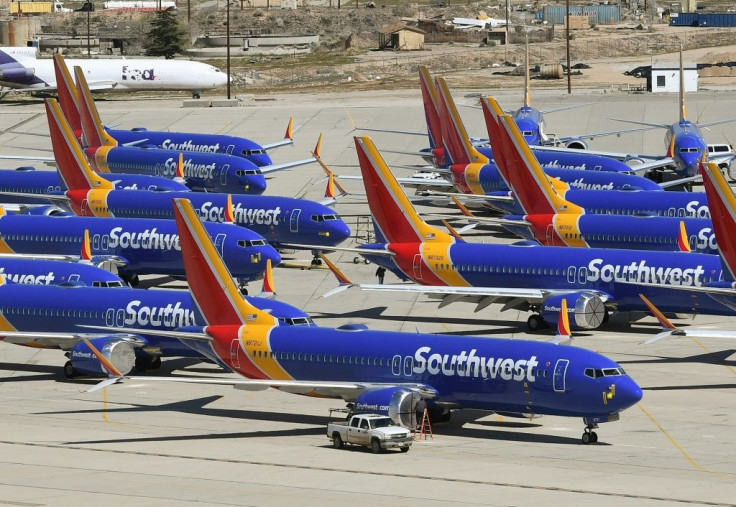Boeing 737 MAX Update: Planemaker Close To Securing $10 Billion Loan

KEY POINTS
- Boeing has secured $6 billion of the $10 billion it is seeking
- The loan amount could be increased further as Boeing awaits recertification of the 737 MAX
- Both the two 737 MAX crashes and a fatal 2009 crash involving the 737 NG involved a system dependent on a single faulty sensor
Boeing reportedly is close to securing a $10 billion loan to bolster its finances in the wake of two fatal 737 MAX crashes that killed 346 people and led to the plane’s grounding.
Word of the loan Monday coincided with revelations a 2009 Boeing crash in Netherlands bore some of the same hallmarks of the two more recent incidents.
Bloomberg reported Citigroup is leading the loan discussions while CNBC reported the size of the transaction, saying $6 billion already had been secured, with the possibility the final total could be increased above $10 billion. Bank of America Merrill Lynch, Wells Fargo and J.P. Morgan reportedly are participating.
The 737 MAX was grounded last March, and it was unclear when the plane would return to service. The grounding followed the crashes of planes belonging to Lion Air and an Ethiopian Airlines blamed on a faulty sensor in a system that measured the plane’s angle to the wind. The sensor forced the plane’s nose down, leading to a death spiral. In the 2009 crash, the sensor triggered a cut in speed just before landing.
Boeing (BA) had hoped to get the 737 MAX back in the air this spring but revealed last week yet another software problem with the aircraft, that on the heels of word of a wiring problem in the tail.
The plane, initially certified in 2017, was Boeing’s fastest selling model. Production has been suspended, and American, United and Southwest have pulled the plane from their schedules through June.
Moody’s last week said it was putting Boeing’s credit rating under review.
The New York Times said Monday it had reviewed a Dutch Safety Board report that was never made public on the February 2009 crash of a Turkish Airlines flight that involved the 737 Max’s predecessor, the 737 NG. That crash also was caused by a faulty sensor. Boeing had developed a software fix before the crash and incorporated it on new planes, but the fix wasn’t compatible with older models.
A study conducted by aviation safety expert Sidney Dekker found “design shortcomings” with the plane.
Boeing brushed aside comparisons between the 2009 and more recent incidents, saying the systems involved were “fundamentally different.”
“Drawing broad connections between accidents involving different types of emergencies oversimplifies what is, by definition, a complex science,” the Federal Aviation Administration said in a statement.
© Copyright IBTimes 2024. All rights reserved.






















